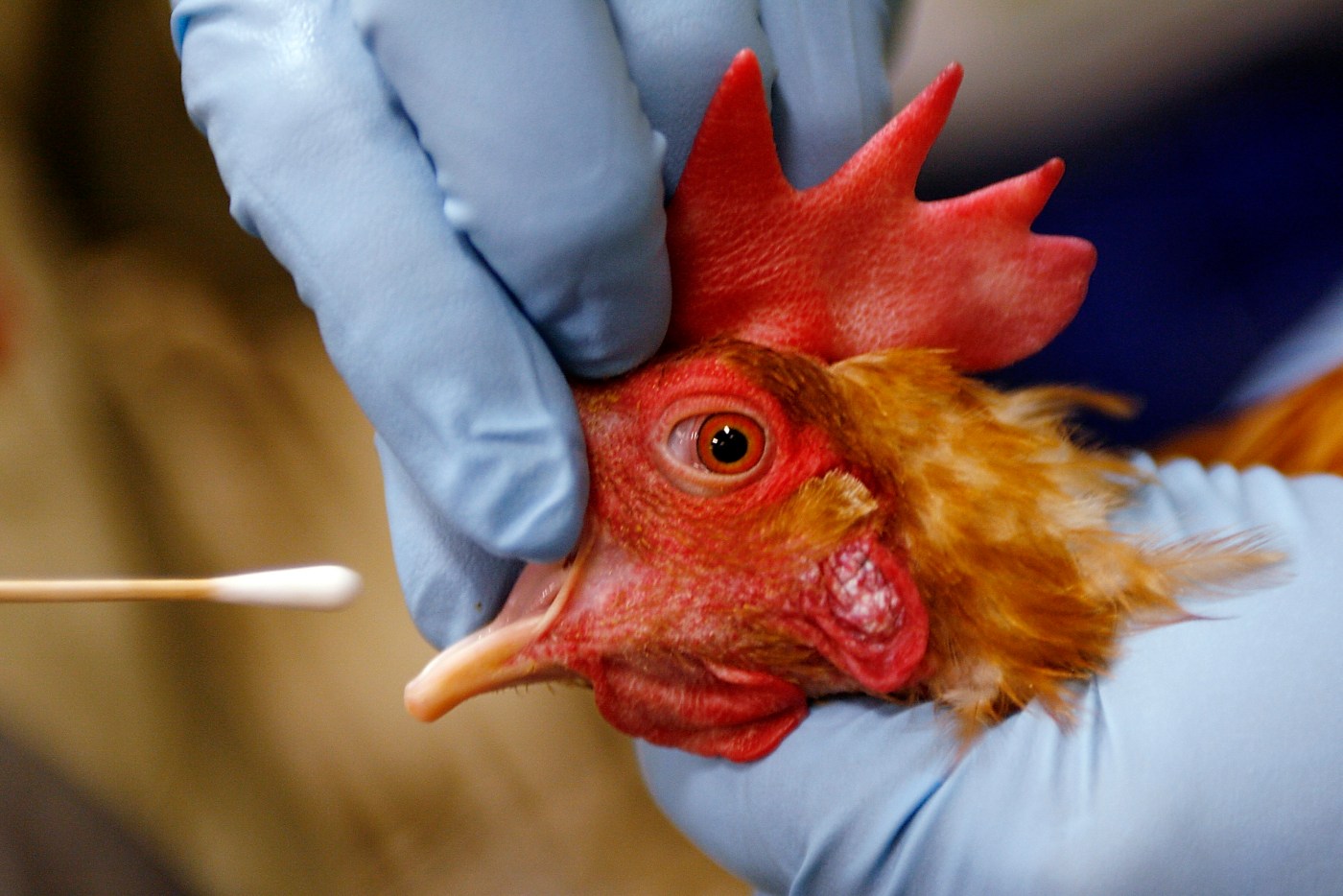A person who worked on a dairy farm and had “direct contact with dairy cattle” tested positive for avian flu in Texas late last week, the state’s Department of State Health Services said Monday. The case was confirmed by the US Centers for Disease Control and Prevention over the weekend, the department said.
The CDC said the person who has the H5N1 virus is recovering and was told to isolate.
Their only symptom was eye inflammation, and they are being treated with oseltamivir, the Texas health department said. Oseltamivir is the generic version of the antiviral medication Tamiflu.
RELATED: Bird flu infects Northern California’s historic poultry region, putting small farmers in peril
The department is working with local, state and federal health partners to investigate the case and has issued an alert asking health care providers to monitor for any additional cases of avian influenza.
“The case does not change the risk for the general public, which remains low,” the Texas Department of State Health Services said in a statement.
The CDC also said Monday that the risk is low but said it is monitoring the situation.
“Because influenza viruses constantly change, continued surveillance and preparedness efforts are critical, and CDC is taking measures in case the public health risk assessment changes. This is a developing situation, and CDC will share additional updates as new relevant information becomes available,” the agency said in a news release.
According to the Texas health agency, the CDC said this is the first case of H5N1 flu in a person linked to dairy cattle and the second case in a person in the US.
A Colorado man who had direct exposure to poultry and the culling of birds had bird flu in 2022.
There is no risk to the commercial milk supply, the Department of State Health Services said.
RELATED: Bird flu is decimating seal and sea lion colonies. Scientists don’t know how to stop it
“Dairies are required to destroy or divert milk from any sick cows, plus pasteurization kills avian flu viruses,” it said in the statement.
Avian flu is a type A influenza virus that originated in birds and has been detected in more than a hundred species like seagulls, owls and ducks in the US since 2022.
Related Articles
Silicon Valley biopharmaceutical company files for Chapter 11 bankruptcy
Seton temporarily closes Moss Beach ER; Daly City workers protest health benefit limits
CDC alerts doctors to watch for rare, serious bacterial infection appearing with unusual symptoms
COVID and Medicare payments spark remote patient monitoring boom
US tuberculosis cases were at their the highest level in a decade in 2023
Many mammals in the US, mostly in the West and Midwest, have been infected with the virus in this latest outbreak.
Cases have also been reported among bears, foxes, possums and seals.
Scientists say those animals probably got sick when they ate or interacted with infected birds.
The virus can spread through feces and saliva and through contact with contaminated surfaces.
Human-to-human transmission of avian flu through close contact is “very rare,” according to the CDC.
Symptoms of the virus can range from no symptoms at all to mild – with flu-like illness or eye redness – to severe, with cases reported of pneumonia requiring hospitalization.
The-CNN-Wire
& © 2024 Cable News Network, Inc., a Warner Bros. Discovery Company. All rights reserved.












